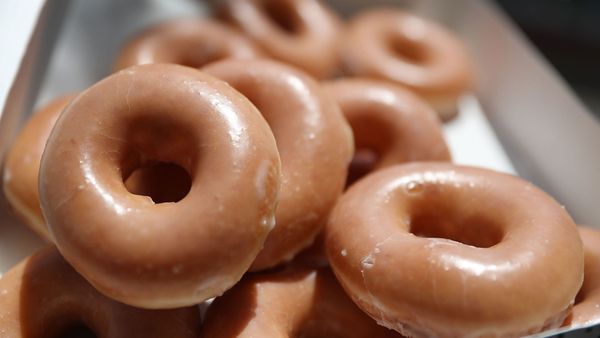
It's often said that breakfast is the most important meal of the day, but people usually don't make it the nutrient and protein-packed dining experience that it probably should be. In fact, three of the most popular breakfast options in America – bagels, muffins and doughnuts – are hardly what you'd call healthy or waistline-friendly. Still, sometimes they're the easiest options when a person is on the go or forced to make do with the breakroom offerings at work.
So, if you're wondering how they rank in terms of nutritional value, we talked to some experts to find out which to select and which to skip. For the purpose of consistency, we compared three treats from the same place. Obviously, nutritional profiles vary depending on the particular recipe.
Advertisement
(Note: The USDA recommends you should consume less than 20 grams of saturated fat, 225 to 325 grams of carbohydrates, less than 2,300 milligrams of sodium, and less than 50 grams [12 teaspoons] of added sugar, assuming a 2,000 calorie-a-day diet. All these totals should be less if you're trying to lose weight.)

